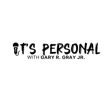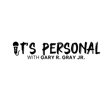Become a Creator today!Start creating today - Share your story with the world!
Start for free
00:00:00
00:00:01

EP. 117 Charlene Carr chats adult writing, siblings, and travel life
Charlene has always loved writing. She grew up reading Dickens and Tolkien and Bronte. When she turned to contemporary books, too many were predictable, with characters that felt like paper doll cut-outs. It took time but, through the misses, she found books full of realistic characters, who messed up like the rest of us. Those were the books she was aching for, and are the type she aims to write.
On this podcast, the Canadian writer talks about her inspiration from travel (living in multiple places), growing up with brothers, adult fiction, the editing and revising process, and future writing aspirations..
Website: https://www.charlenecarr.com/about2/
Instagram: https://www.instagram.com/charlenecarrauthor/
Twitter: https://twitter.com/charcarr1
Facebook: https://www.facebook.com/charlenecarrwritinglife
Transcript
Introduction to Podcast and Guest
00:00:00
Speaker
All right, all set. Hey, what's up, everyone? Welcome to It's Personal, a podcast about creators and their stories.
00:00:26
Speaker
Welcome back, everyone, to another episode, if it's personal. We're on season five, and I'm super excited for my guest today for so many reasons, so many reasons. One, I don't know why, but I totally forgot that she was living in Dartmouth, which is like, it's not home home, but it's very, very close to home, so it makes me very excited. Can you introduce yourself?
Charlene's Background and Cultural Influences
00:00:46
Speaker
I'm Charlene Carr. How much more do you want? I'm a novelist. Give it to me. Give it to me. Yeah, for anyone who's watching on video, they're behind my most recent behind me with its three wonderful covers, Hold My Girl. And yeah, I grew up in Toronto. I moved to the Maritimes in 99, Nova Scotia in 2007. And so I've mostly been here since then, minus a four and a half year stint in St. John's, Newfoundland.
00:01:15
Speaker
You've been busy in regards to moving from place to place because I checked out your, I knew, I mean, I think I forgot, but I knew you're in Canada. I originally thought living in Ontario, but you had spent time in Ontario, now you're in Nova Scotia. But growing up, you've lived in lots of different places. I did, yes. I've lived in seven provinces and four countries.
00:01:37
Speaker
And yeah, I traveled around a lot too. I think I visited 17 countries now and- Wow. I was quite the nomad and then parenthood kind of slowed that down. That tends to do that, right? It tends to do that. How much would you say your travel has like influence just like, not necessarily your writing, but just like who you are. Cause I always tend to tell people like traveling is like one of my, I'm, I've been blessed with travel because I didn't grow up traveling at all.
00:02:05
Speaker
Yeah, I did most of it as a young adult and it influenced, I think, my worldview and my writing quite a lot. Living among different cultures, cultures different from my own really affected my worldview and I realized from doing that, especially living in South Korea, how Westernized my worldview was and my concept of identity and family and what it meant to be
00:02:31
Speaker
an independent individual. And they're so family based there. And so that really, really just shook me at my car. My whole core, I mean, my whole idea concept of building it to be like a mature person and a grown up totally changed from that because I thought it was all about independence and all about doing it on your own. And just seeing their, their culture really made me realize it doesn't have to be that way. And there's nothing shameful about wanting
00:02:59
Speaker
like solid steady people, whether that's family or someone else in your life. Like there's nothing shameful about meeting other people. And I don't know exactly why I had that idea, but I just thought like I moved out of my parents home at 17 and it was like, okay, I'm grown now. Like I got to do this on my own. And, um, yeah, so that was really inspirational. And also just my travels before that as well.
00:03:20
Speaker
seeing the way that different people lived, whether they were wealthy, whether they weren't different educational backgrounds and really just realizing that people are people no matter where you go. And we all really want and need the same core things. And that just, I think really shaped who I am and how I view the world and very much how I write in the idea that we're all striving for the same things and we all make the same types of mistakes sometimes
00:03:47
Speaker
You know, in bigger ways than others,
Impact of Travel on Personal Development
00:03:49
Speaker
depending on who you are and your circumstances, but all have the potential to be our own worst enemy, but which means also we have the potential to change that and shape our lives for the better. So yeah, I think that's the biggest way that my travels.
00:04:02
Speaker
I love that answer because I did a little bit of travel. I don't know. It depends. I don't want to downplay traveling within the country that you're living in because that is still travel. So I did a lot of in-country travel in a few states when I was younger, but I feel very similar. Being abroad and teaching in international schools and being
00:04:27
Speaker
given the opportunity to travel within different countries has done the exact same thing for me. Like being able to see different perspectives to different people, different types of literature, et cetera. Like those things have really influenced a lot of who I am today. So I love hearing that. I love, I always push travel. People ask me like, should I travel? Like I can't afford it. I'm like, yes, you should travel. Like it is always worth it. Almost all of my travel was work related. I'd travel and I'd get a job somewhere for a while or study related. And
00:04:57
Speaker
you know, support myself as I was doing that. And it's actually really
Family Dynamics and Early Writing Passion
00:05:01
Speaker
interesting when you talk about traveling in your own country. And I think as Canadians, we have a very unique ability to travel within our own country and really absorb many different cultures in a way that people in other countries wouldn't. I mean, you're in Europe and the countries are so small, you know, you hopped place to place, but in Canada,
00:05:21
Speaker
Obviously, there's some uniformity in our viewpoints, but in many ways, like East Coast Canada to West Coast Canada, those are different people, different ways. Totally different. Yeah.
00:05:31
Speaker
I totally agree. That's a really good point. Charlene, I think I read you're the youngest of four. And I think I also read that you're the only girl or female. I'm just curious of like how that was growing up and where are you on the scale of like age wise as well? Like, are you like the youngest? What was it like for you as the youngest of four?
00:05:59
Speaker
So my older brothers are 15, 12 and four and a half years older than me. So there's a big span there. And in many ways it was kind of like two different families growing up from the older two. And then my youngest brother who's four and a half years older, um, and myself. And yeah, it was interesting. Um, I wouldn't say I had.
00:06:23
Speaker
a very great relationship with the eldest two growing up. We were just, we were in different worlds. And I was this little kid who came into their lives when they were basically grown and, you know, made things frustrating for them. I think for my existence and also the fact that my parents were so different. Like when my eldest brothers were growing up, my parents were recently in Toronto. They had come from Jamaica.
00:06:51
Speaker
My mother had lived in PEI before in a very rural community. My dad grew up in the mountains of Jamaica. And so in a way, when I talked about Canada, like different cultures, different ways of being in a sense in Toronto, my mother was a bit of an immigrant as well, I think, even though she's from Canada, but just in
00:07:08
Speaker
the environment and social scene being so, so very different. And so I think the way that my parents raised my two older brothers, you know, coming into this new place, trying to find their way was very different than the way that I was raised.
00:07:24
Speaker
a lot of just like the household and even like in school. So were there times where, well, I'm assuming yes. And then there's also times where you're by yourself based on the age in school systems. Like what did that look like for you having siblings within the school system? And then at times not having them there as well. So I actually don't remember really being in school with any of my siblings. I guess my youngest brother must have been in elementary
00:07:53
Speaker
with me for about two years. But honestly, I don't remember him. So I'm guessing that we didn't interact very much in school. I mean, I would have been in kindergarten grade one, and then he'd be gone. And the other two, I wasn't in school with them at all. Yeah, I think it didn't really influence or affect.
00:08:15
Speaker
I guess I remember somewhat in elementary school being referred to as Clinton's little sister a few times. You know, people still kind of remembering him even as he moved on to junior high because he was very athletic and teachers certainly remembering him. So he's very athletic. He was very talented at art and drama and all of these things. And so even from seeing that when we weren't in the same school system, I think that that made me
00:08:42
Speaker
very insecure to even try to excel. I wasn't very athletic. I was quite the chubby kid. By the time I was eight or nine, I was picked on a lot. And so I think maybe the memory of him being this super cool kid, very talented, you know, sports affected me. And it was actually when I moved to New Brunswick. And so I suddenly became an only child because none of my brothers came with me that I
00:09:11
Speaker
was able to come into my own a lot more. Um, you know, I realized, wow, I have art skill and I had, you know, athletic skills in different ways. I was never
Writing Process and Overcoming Challenges
00:09:21
Speaker
really great at team sports and don't think I had the confidence, but individual sports, um, I was able to excel at a bit more. So it was, go ahead.
00:09:31
Speaker
No, I love that. I love that. And I think my second question is then like, at what point is at the same time where you kind of fell in love with the idea of writing because you had time? No, what? No, I always, I always was in love with that idea. So I've been writing since I was like five or six years old, writing little stories and never anyone asked me what I wanted to be.
00:09:52
Speaker
You know, it was, I want to be a teacher and an author. I want to be a figure skater and an author. I want to be a veterinarian and an author. Like that was always the consistent thing I wanted to do. I never thought that I'd be doing it full-time, that that could be my career. Um, but it was always a part of it. I love that. And what, and for those of you who haven't read any of, of Shelling's books, like what types of books do you like to write? Um, so everything I've written so far has been very true to life. So, you know,
00:10:22
Speaker
It's not horror, it's not thriller. So I guess those things can happen in real life sometimes, but it's not sci-fi or fantasy. It's just people who could exist in the world in scenarios that could happen. Yeah, I might explore further one day. I'm kind of interested in speculative fiction, but so far that everything that I've written just falls under kind of the general category of story that could be. What's like sparks your
00:10:50
Speaker
kind of creative process for you? Is it traveling? Is it experiences? Is it moments with family? Like, where do you get? I always find this interesting because authors always have different ways of finding inspiration. Like, where do you find inspiration for stories? All of the above. It could be anything. And I would say that I come to each story, each book in a different way. Sometimes it's, you know, a line of poetry. Sometimes it's a sentence someone says. Sometimes it's looking out and
00:11:20
Speaker
seeing a beautiful spark of nature. You know, I have one book that's my longest and I was walking in the woods somewhere in New Brunswick one day and I, there were crickets and I saw the sunlight streaming and I came back and just wrote a line and like that blossomed into my longest novel to date. Um, so it can just kind of spark from anything anywhere.
00:11:43
Speaker
And sometimes I have to search for it, like, of course, of course I can imagine because someone who writes, you know, like, it's not like you're writing a picture book, where you know picture books are hard to write but at the same time like you are generating a lot of words building
00:12:01
Speaker
characters building settings building like you're building a world for people to read about which takes a lot of time so like my other question was like what does that revision process look like for you um is there any like tips in regards to how you get to where you do with that finishing product um i have to be very methodical about revision uh
00:12:25
Speaker
You know, writing, I have become more methodical about it just because of time. And now that I'm writing for a living and I have deadlines, you know, I can't just be like, Oh, I'm not feeling it. Let me put it aside for five months. Right. That's not a possibility. Um, but methodical about that and the revision in the same way, I, I often use books as kind of a structure, like books on revision to figure out how I'm going to do it. Uh, I will start with the biggest things first. So.
00:12:54
Speaker
If I do my first read through of a draft and you know, you can usually figure out something that's really not working. Maybe it's way too long. Maybe the structure is off. Maybe the pacing's off. Maybe characters don't have the motivation you thought they would have. Like they don't feel believable enough. And so I'll start with the biggest things first, which is that I'm tired because it's a lot easier to start on a line level.
00:13:19
Speaker
But I know from experience that that's pointless because you can make the prose beautiful and wonderful and then end up cutting 15 chapters, which is a huge waste of time. So yeah, and I just kind of.
00:13:34
Speaker
work down from that. Once I get the really big things gone, then I start looking on a smaller level. And I might do one read through that's mainly focused on character arcs and character motivation. And I might do another read through that's mainly focused on facing and structure in the sense of making sure that every scene is doing work, that it's not there just to be there, and that there's some concrete reason. And if it were gone, this story wouldn't be
00:14:03
Speaker
quite what it was. So that's kind of, and then you work down and down and eventually you get to the point where you're just like, okay, is this line working?
00:14:09
Speaker
I have always find it so interesting listening to writers and their process because yeah, I always hear that. I do honestly hear the word methodical a lot. Um, especially with writers who are, you know, they have books that are, that give so much value to the world. Like people who are consistently, like you have a lot of books, like you've written a lot of books, right. And I think I can imagine like the first one was extremely difficult. The second one was extremely difficult. I don't think it gets.
00:14:38
Speaker
easier i think it sounds like the ideas come easier but you know like it just seems like it's also each book i think i get more efficient yeah i don't know that all in all it's easier but it's more efficient and also
00:14:52
Speaker
those days when, you know, I'm thinking like, Oh, this is crap. And I don't know if I have it in me. And, you know, is this book going to be worth anything? I have
Exploration of Genres and Future Plans
00:15:01
Speaker
to look back and say, okay, I felt this way before. And I always figured it out. And I made a book that added some value to the world. And so I'm going to be able to do it again. And that's what you got to hold on to. And so that's really hard when it's your first one. Yeah, totally. Totally. Yeah.
00:15:19
Speaker
I guess one of my last questions for you are like, have you ever thought of writing outside of other genres or other age groups? And so when I first started writing, so my first novel, which was never published, would have been Young Adult. You know, I wrote that when I was 14. And at that point, I thought that's what I'm going to write. But obviously, as I aged and some of my interests shifted, I started writing books that align more with where I was at that point in my life.
00:15:48
Speaker
I do think that at some point I'd like to go back to young adults. It might not be for a while and seems kind of a funny thing to transition to as you get older, but more because when I was a teen, some of those books meant so much to me and shaped my life in amazing ways. And so I'm kind of guessing that when my daughter hits that age and I start reading what she's reading, there's a chance I might kind of dip into that genre as well.
00:16:15
Speaker
Um, picture books, the same thing I, you know, my daughter's getting past that age, but, uh, it's always kind of interested me and I could see myself doing that one day. And then as I mentioned before, just other adult genres, like I'm kind of interested in speculative fiction. I'm interested in, I guess more maybe the domestic thriller genre. Um, and that's becoming, I think a lot more elevated in recent years. So it's not just about.
00:16:44
Speaker
the plot, we're really seeing the character development, uh, through that. And actually my most recent novel hold my girl. Um, I've had multiple reviewers, like Sheila Rogers from the next chapter, um, Toronto star reviewers, they called it a thriller, which surprised me. And I think surprised my,
Where to Find Charlene's Work
00:17:04
Speaker
um, you know, marketing team and publicist and agent. And I think though, the qualifier is that it's more of an emotional thriller.
00:17:11
Speaker
So it doesn't have that prime, that sense of danger, but emotionally it really pulls the reader back and forth and what's going to happen. And so it'd be interesting to take that and mix it with a more traditional thriller as far as plot goes.
00:17:29
Speaker
Wow so much to think about and I think it's so cool I think it's so cool that you're thinking about your daughter as well because yeah obviously you know as a reader and writer like your interest chain changes all the time but to to write yeah I guess for her in different genres like I think that would be such a cool
00:17:50
Speaker
way to like, you know, dip your toes into something that's a little bit different than what you, you normally write. How old is she now? She's five. Oh, that's a really good, like I teach third grade. I always feel, I feel like third grade is my, like, it's my sweet spot, especially with like age groups, but like eight or nine, is it?
00:18:08
Speaker
You're like eight or nine. Um, and that's when they're reading like up a storm. They have all these like wacky interests and they're reading the graphic, you know, all this stuff. Um, so I, I, yeah, I mean, I'm, I'd be very curious to see what that looks like for you. Um, Charlie, where, where can people find you online? Uh, so my website is sharlenecar.com that C H A R L E N E C A R R.
00:18:36
Speaker
And I'm most active socially on Instagram, which is Charlene Carr author. Awesome. And where can we find, which I think I know it sounds like all the major, you know, all the places, but where can we find your book? So my most recent book, Hold My Girl, you'll find it in, you know, any bookstores and online. It's not out in the U S yet. It will be on up in October and all my other novels are independently published. So you can find them on most online retailers. They're not in stores.
00:19:04
Speaker
but Amazon, Cobo, Barnes and Noble, all those great places. Awesome.
Conclusion and Appreciation
00:19:09
Speaker
This is so fun. I appreciate you. Thank you so much. You're welcome. This is awesome. Awesome. So I do.





